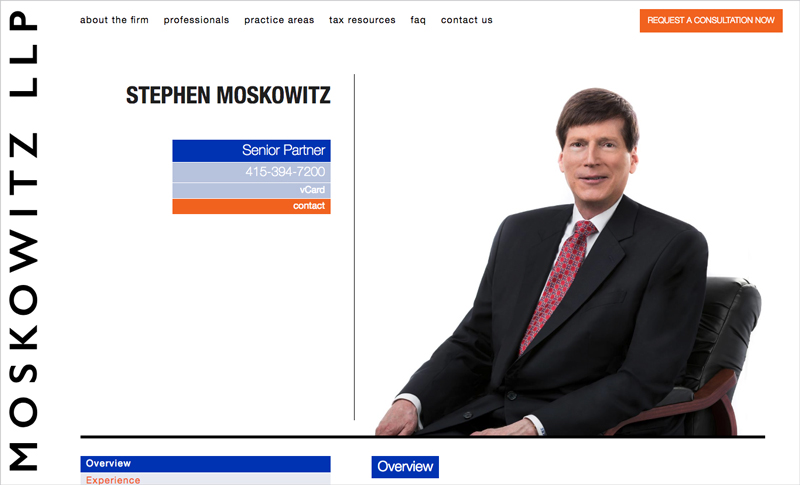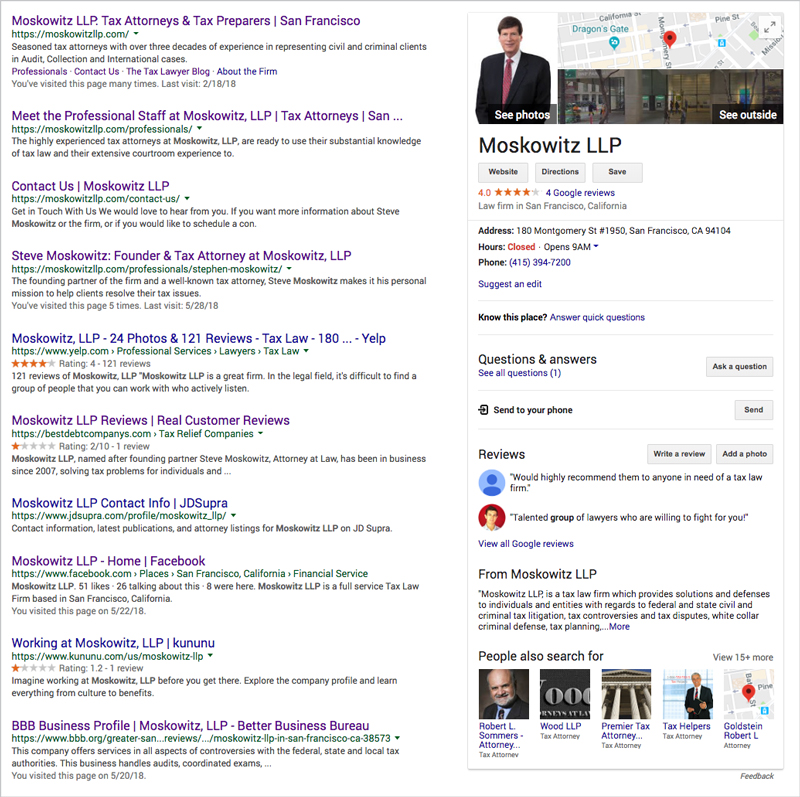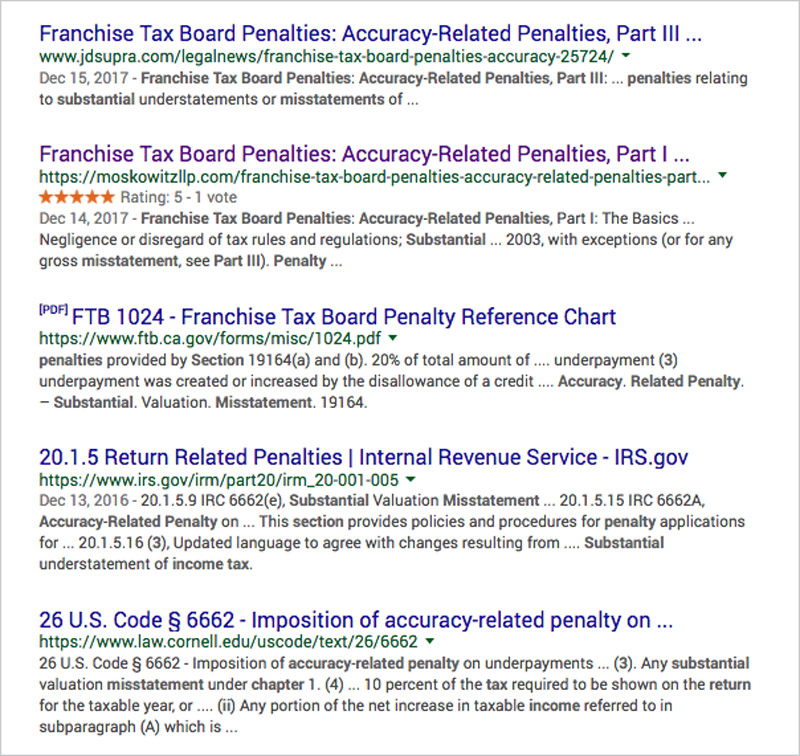This post is part of the larger series we’ve written about law firm SEO techniques. In this post, I talk about structured data: what it is and why legal marketers should care about it.
I’ve written in the past about Schema markup and structured data in general. Recently, we’ve been marking up several law firm websites with Schema. In the interest of sharing, my next two posts will outline an approach to marking up a law firm with Schema. First, though, an explanation…
What is Schema Markup?
The FAQ page at Schema states that,
Schema.org is a joint effort, in the spirit of sitemaps.org, to improve the web by creating a structured data markup schema supported by major search engines. On-page markup helps search engines understand the information on web pages and provide richer search results. A shared markup vocabulary makes easier for webmasters to decide on a markup schema and get the maximum benefit for their efforts. Search engines want to make it easier for people to find relevant information on the web. Markup can also enable new tools and applications that make use of the structure.
What the Hell Does that Mean? How can Schema Help me Market my Law Firm’s Website?
The juicy part of the explanation above lies in this sentence, “On-page markup helps search engines understand the information on web pages and provide richer results.” Schema markup (which is just one type of structured data) gives actual semantic meaning to the content on a web page. For legal marketers, this has two principal benefits.
Semantic Richness = Google Understanding Your Website Better
What’s in a Webpage? Take a look at the following two screenshots from a current client of ours. The first is the firm’s homepage and the second is the Bio page of its founder.


Both pages above already have a fair amount of information which helps Google understand what each page is about. Both have, for instance, Meta Title tags which read “Tax Attorneys & Tax Preparers…” and “Steve Moskowitz, Founder & Tax Attorney…” Both feature copywriting which further elaborates on the page’s content. Using Schema, though, provides Google with a much deeper understanding of a page’s content. Schema actually associates ideas on web pages with a ‘dictionary’ of defined concepts. So, for instance, Steve’s page is marked up with the definition of a “Person” and the homepage is written up as the site of a “legal services” business. With Schema, Google no longer has to extrapolate or infer. With Schema, Google knows exactly what the content of a page is about. This notion of ‘semantically understanding’ a page is the abstract concept which powers real marketing results. To understand what I mean here, read on…
Semantic Richness = “Richer Results”
To better understand the real marketing benefits Schema can confer, try googling your business and looking on the right-hand side of the search engine results. I’ve included a screenshot below of our client’s SERP.

Does your business have one of those panels? It’s called ‘the knowledge panel.’ And the data within it is influenced by structured data.
Having structured data on your website doesn’t result in a knowledge panel. But the contents of that panel are influenced by it. Data found within the panel is pulled (partially) from the markup on the site. Google trusts structured data enough to have it populate the knowledge panel because it knows that data represents ‘entities’ for which it has an understanding.

The above image is an actual search engine results page for a tax law topic. As you can see, there’s more competition for a reasonably esoteric phrase than you might think! Of course, the order of the results is likely to be the greatest indicator of clickthrough. But, also notice that one of the posts has a series of orange stars next to it. Those stars represent what’s called a ‘rich snippet.’ And rich snippets only show up as a result of having structured data on your site.
Are you beginning to see the value structured data can afford your website? Using structured data to explicitly communicate semantic meaning to the search engines is one component of a more robust presence for your firm, on the web.
Next, in my ‘Law Firm SEO series,’ I’m going to show you how and what pages to markup, on a typical law firm website.
Resources